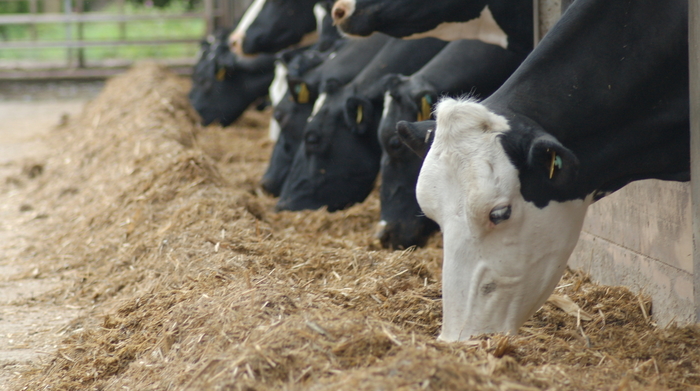A new dietary supplement from Trouw Nutrition GB can help reduce the under-estimated problems caused by carbohydrate fermentation in the hindgut, reducing inflammation and increasing energy utilisation and milk production.
“Farmers know that feeding high levels of rapidly fermentable carbohydrates, especially in early lactation can result in sub-acute rumen acidosis (SARA) and take action to reduce the incidence,” comments Ruminant technical manager Mark Hall. “But symptoms commonly attributed to SARA like loose and frothy faeces and mucus in faeces are actually signs of hindgut acidosis which requires a different preventative strategy to SARA.”
If the fermentation in the hindgut is disrupted with an increased level of lactic acid, the consequence is that the gut barrier is damaged resulting in a condition called leaky gut. This damage to the gut lining causes inflammation which diverts energy away from milk production leading to reduced yields and higher costs per litre. An inflammatory response can use up to 1Kg of glucose in a 24-hour period, with 40 litres of milk requiring 3Kg of glucose.
Lactibute has a unique mode of action which reduces the effects of leaky gut. It contains calcium gluconate which promotes the conversion of lactic acid to butyrate. A shift towards butyrate production in the hindgut helps strengthen the gut barrier and reduces inflammation, reducing glucose lost to inflammatory response.
“A healthy intestine is more efficient at absorbing nutrients. Trials at leading Institutes around the world show that this, combined with less energy being diverted to inflammation means that cows fed Lactibute produce on average an additional 0.85kg of energy corrected milk per day throughout the lactation.”
Lactibute should be fed at a rate of 16g/cow/day and can be added to TMR or included in compounds.


